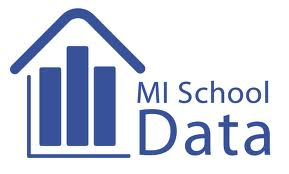Instruction
English Language Arts
In 2015, the Third Grade Reading workgroup was created across the State of Michigan to address declining literacy data in the Great Lakes State. The workgroup examined the issue in great detail, interviewing teachers, reading interventionists, superintendents, principals, professors of early literacy development, and policy experts, reviewing data and programs, and models which demonstrated they were working in promoting an increase in literacy data.The recommendations to achieve this work must focus on:
- Giving students the research-supported diagnostic and screening instruments, instruction, and interventions necessary for success.
- Providing every educator with training to use diagnostic-driven methods with knowledge and fidelity.
- Engaging parents in developing their children’s early literacy skills through information, awareness, and outreach.
- Providing Michigan teachers and leaders with data that compares our status and growth over time and when compared to other states.
Mt. Morris Consolidated Schools believes that a solid literacy foundation is critical to promoting its mission of fostering innovative thinking for lifelong learning as literacy represents the gateway to an educational experience which inspires excellence. These resources will assist in promoting literacy instruction in the classrooms around Mt. Morris.
Mathematics
Michigan’s K–12 academic standards serve to outline learning expectations for Michigan’s students and are intended to guide local curriculum development. Because these Mathematics standards are shared with other states, local districts have access to a broad set of resources they can call upon as they develop their local curricula and assessments. State standards also serve as a platform for state-level assessments, which are used to measure how well schools are providing opportunities for all students to learn the content required to be career– and college–ready.
The Standards set grade-specific standards but do not define the intervention methods or materials necessary to support students who are well below or well above grade-level expectations. It is also beyond the scope of the Standards to define the full range of supports appropriate for English language learners and for students with special needs. At the same time, all students must have the opportunity to learn and meet the same high standards if they are to access the knowledge and skills necessary in their post-school lives. The Standards should be read as allowing for the widest possible range of students to participate fully from the outset, along with appropriate accommodations to ensure maximum participation of students with special education needs. No set of grade-specific standards can fully reflect the great variety in abilities, needs, learning rates, and achievement levels of students in any given classroom. However, the Standards do provide clear signposts along the way to the goal of college and career readiness for all students.
Through its commitment to all students having a solid background in the skills required for success, Mt. Morris Consolidated Schools provides its support for fostering innovative thinking for lifelong learning in Mathematics education. The resources listed are provided to enhance the overall learning experiences for all students in Mt. Morris.

